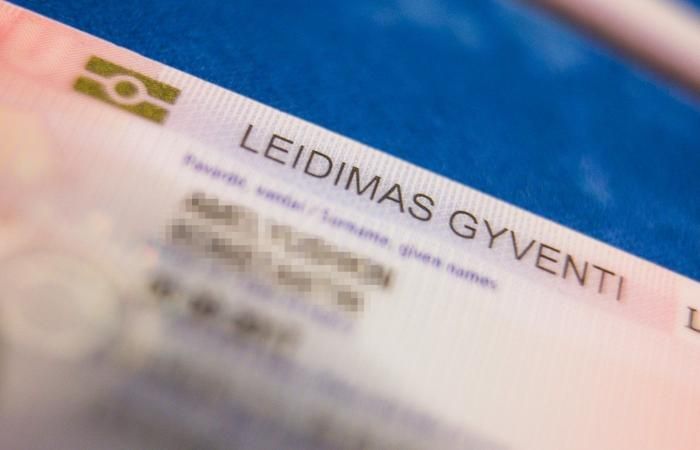- Home
- 2022 08 01 Novelties of Issuing a Residence Permit to Highly Qualified Specialists and Other Foreigners
Novelties of Issuing a Residence Permit to Highly Qualified Specialists and Other Foreigners

Since 01 August 2022, amendments to the Republic of Lithuania Law on the Legal Status of Foreigners have entered into force, in order to resolve an issue of talent shortage in Lithuania and reduce burden to employers intending to hire highly qualified foreigners.
From now on, foreigners will be able to apply for temporary residence permits on the basis of highly qualified employment (Blue Card) under the simplified conditions.
Firstly, the List of Shortage Occupations Requiring High Professional Qualifications has been repealed. It has been replaced by a new list “List of Shortage Occupations with High Added Value in the Republic of Lithuania”
https://www.e-tar.lt/portal/lt/legalAct/92787d70f84311ec8fa7d02a65c371ad
Foreigners whose profession is included in the latter list will have to be paid at least 1.2 times the amount of the last published average gross monthly wage for the calendar year (currently – EUR 1,895.28). However, provided the foreigner’s activity is not included in the aforementioned list, they must be paid at least 1.5 times the amount of the last published average gross monthly wage (currently – EUR 2,369.10).
Secondly, the requirement for foreigners who apply for the Blue Card to obtain a decision of the Employment Service indicating that foreigner’s job meets the needs of the labour market of the Republic of Lithuania has also been revoked.
Thirdly, when having acquired no higher education, it will now be possible to prove not only at least 5 years of professional experience, but also at least 3 years of professional experience, provided it was acquired during the last 7 years in the IT sector.
Fourthly, from now on, the minimum period for which an employer will have to employ a foreigner shall be 6 months instead of 1 year.
Fifthly, from now on, a highly qualified employee will be entitled to change a job function with the same employer without obtaining a permit of the Migration Department.
The obligation to obtain a permit from the Migration Department shall remain in force in the following cases: if a foreigner prefers to change the employer within 1 year of his/her legal employment in Lithuania or intends to take up another job requiring high professional qualifications after losing his/her job and before the expiry of the six-month period.
It should be noted that the time limits for the Migration Department to issue such a permit have also been shortened: the Migration Department took an obligation to take a decision on the permit to change an employer no later than within 14 calendar days from the date of applying thereupon (previously the term was 1 month).
If 12 months have passed from the receipt of the first Blue Card, a foreigner may change an employer without obtaining a permit from the Migration Department. Thus, the holder of Blue Card must notify the Migration Department on the change of employer no later than within 7 working days.
Sixthly, the holder of Blue Card may be recruited by more than one employer under the employment contract. The foreigner will have to notify the Migration Department on his/her employment with additional employer (provided the main employer remains the same) and do this within 7 working days from the day of conclusion of the employment contract. Nonetheless, all employers must meet the conditions of obtaining a temporary residence permit.
Finally, a foreigner who has lost his/her job in Lithuania will have 6 months to look for a new job, instead of 3 months as it used to be before.
The requirements for the qualifications of foreigners applying for the simple temporary residence permit on the basis of employment are also simplified.
Henceforward, the employer will be able to hire a foreigner who complies with at least one of the following conditions:
- a foreigner has a qualification relating to the job to be carried out, or
- a foreigner has a 1 year work experience gained in the last 3 years that is related to the work to be performed, or
- a foreigner is expected to be paid a monthly salary of at least the latest published average gross monthly wage for the calendar year in the country’s economy (also, including data of wages of individual enterprises), the amount whereof currently is EUR 1,579.40).
Amendments to laws which have come into force since 01 August also provide even more opportunities for the foreigners studying in Lithuania.
First of all, the maximum limit of working time of 20 hours per week for the foreigners, applicable during the period of study or training, has been abolished. From this moment, all foreigners will have an opportunity to work full-time during their studies or training.
Furthermore, the foreigner, who has completed studies or training under the vocational training program in Lithuania, will be able to apply for the issue of a temporary residence permit within 10 years from completion of studies (previously, such period was 2 years) and will be exempt from the requirement to obtain a decision from the Employment Service when applying for usual temporary residence permit on the basis of employment.
It is also important that family members of a foreigner studying a master’s or doctoral degree can apply for a temporary residence permit on the basis of family reunification. This opportunity can also be used by family members of a foreigner who has already completed studies and has a temporary residence permit for the purpose of job search.
MIGRATION LAW CENTER






























